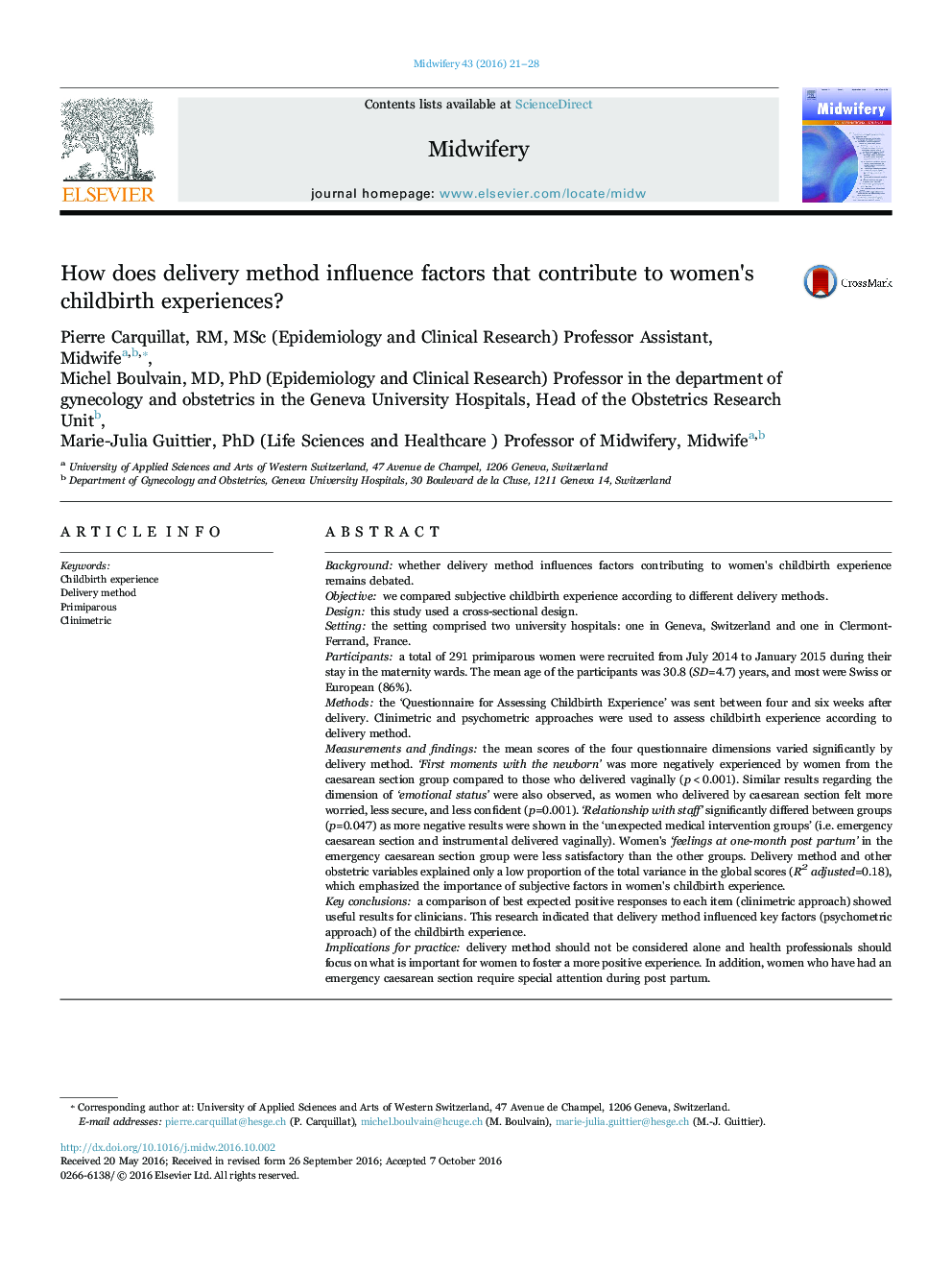| Article ID | Journal | Published Year | Pages | File Type |
|---|---|---|---|---|
| 5122269 | Midwifery | 2016 | 8 Pages |
â¢Delivery method influenced key factors of women childbirth experience.â¢A clinimetric approach provided details and useful results for clinicians.â¢Delivery method should not be considered alone.â¢Health workers should focus on women's key issues to foster positive experiences.
Backgroundwhether delivery method influences factors contributing to women's childbirth experience remains debated.Objectivewe compared subjective childbirth experience according to different delivery methods.Designthis study used a cross-sectional design.Settingthe setting comprised two university hospitals: one in Geneva, Switzerland and one in Clermont-Ferrand, France.Participantsa total of 291 primiparous women were recruited from July 2014 to January 2015 during their stay in the maternity wards. The mean age of the participants was 30.8 (SD=4.7) years, and most were Swiss or European (86%).Methodsthe 'Questionnaire for Assessing Childbirth Experience' was sent between four and six weeks after delivery. Clinimetric and psychometric approaches were used to assess childbirth experience according to delivery method.Measurements and findingsthe mean scores of the four questionnaire dimensions varied significantly by delivery method. 'First moments with the newborn' was more negatively experienced by women from the caesarean section group compared to those who delivered vaginally (p<0.001). Similar results regarding the dimension of 'emotional status' were also observed, as women who delivered by caesarean section felt more worried, less secure, and less confident (p=0.001). 'Relationship with staff' significantly differed between groups (p=0.047) as more negative results were shown in the 'unexpected medical intervention groups' (i.e. emergency caesarean section and instrumental delivered vaginally). Women's 'feelings at one-month post partum' in the emergency caesarean section group were less satisfactory than the other groups. Delivery method and other obstetric variables explained only a low proportion of the total variance in the global scores (R2adjusted=0.18), which emphasized the importance of subjective factors in women's childbirth experience.Key conclusionsa comparison of best expected positive responses to each item (clinimetric approach) showed useful results for clinicians. This research indicated that delivery method influenced key factors (psychometric approach) of the childbirth experience.Implications for practicedelivery method should not be considered alone and health professionals should focus on what is important for women to foster a more positive experience. In addition, women who have had an emergency caesarean section require special attention during post partum.
